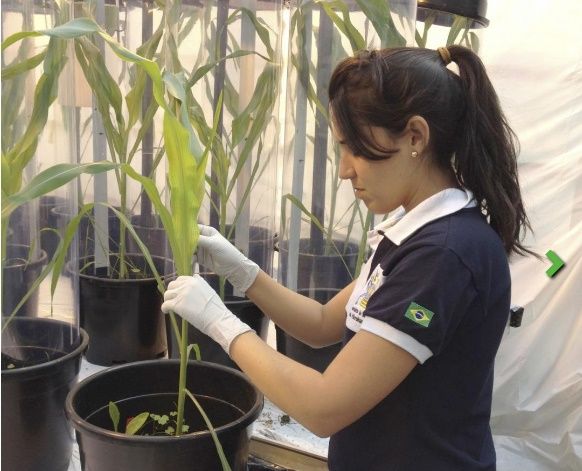Fungi, viruses and bacteria can all be used as microbiological weapons to combat insect pests, but up until now it has not been fully understood how these different mechanisms interact – and what the long-term consequences might be.
New Danish research from the Institute for Plant and Environmental Science at the University of Copenhagen gives cause for optimism. A study has been done on the effects of the Metarhizium brunneums fungus on the aphid midge.
“There have been worries that the use of microbiological methods to attack pests with the fungus have a negative effect on the natural enemies that we also use in biological pest control,” said PhD student researcher Ana Gorete Campos de Azevedo.
“We found out that, overall, it is possible to use both forms of biological weapon together.”
Vestas sued by General Electric over alleged technology theft
Wind turbine producer Vestas, which is now the major player on the US market, is being sued by its main competitor General Electric (GE). The dispute is over patented technology that protects turbines from dramatic power fluctuations called ‘zero voltage ride through’, reports Ingeniøren. The US market is in a period of dramatic growth and GE and Vestas dominate, with a combined 83 percent of the projects contracted for turbines. GE also successfully went to court in 2010 against Mitsubishi Heavy Industries over the same patent.
Morning after pill usage increasing in Denmark – for better and worse
Danish women are increasingly turning to the ‘morning after’ pill, figures from Danmarks Apotekerforening reported in Politiken show. The good news is that fewer abortions are being carried out, but this is tinged with the bad news that there are more incidences of sexually-transmitted diseases being reported. Sales of the pill rose last year from 103,000 prescriptions to 107,000, and the amount is expected to increase again this year. Already on January 2 – traditionally a bumper sales day – 878 packets of the pills were sold as opposed to 690 the year before. The trend continued through the first quarter of 2017.













